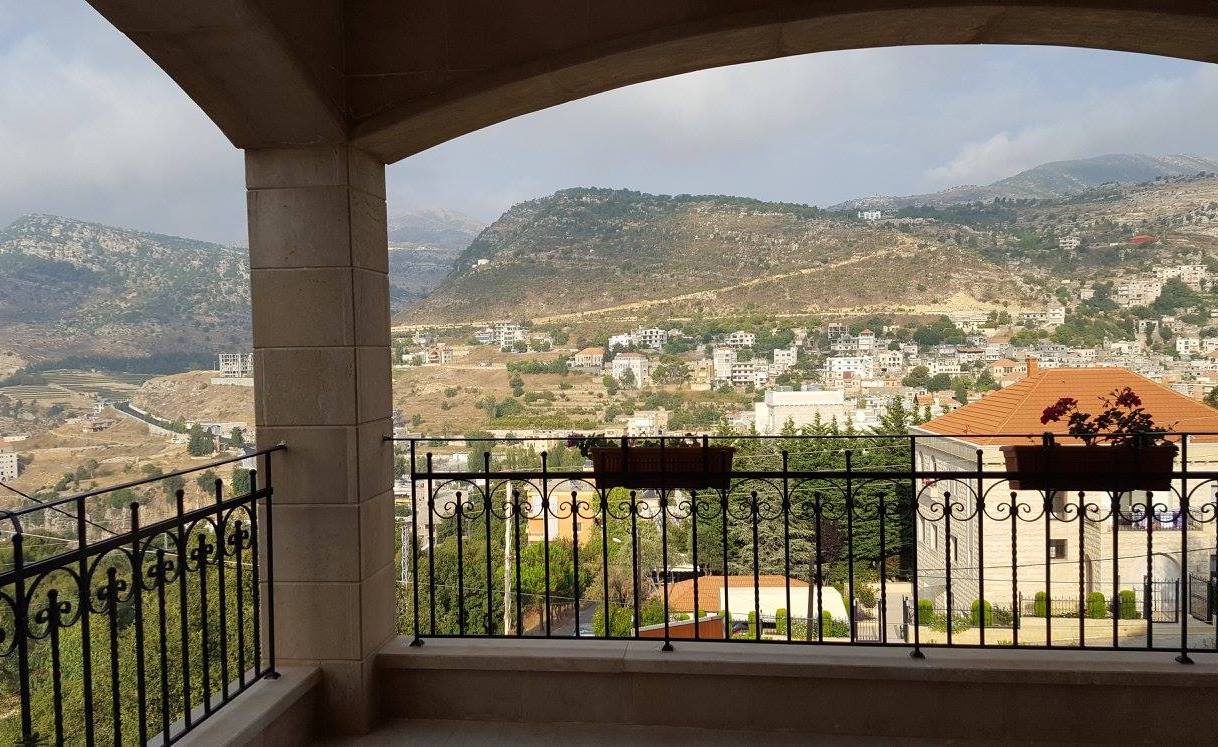As an estate planning lawyer raised in the United States by two parents who grew up in Lebanon, I am acutely aware of stark cultural differences between those countries when it comes to family, death, and estate planning. Sandwiched between two worlds (I have often felt too American in Lebanon, but too Lebanese in America) I find some of the differences endearing, some amusing, but all, a lesson in how culture shapes our worldview and legal systems.
In general, the Lebanese do the opposite of what Americans do. For example, it’s rude to be late for a meeting in this country, whereas in Lebanon, punctuality is viewed as overeager. In America, the dead are more often buried in the ground; in Lebanon, the dead are always placed in family mausoleums—with the mausoleum’s size and appearance reflecting the family’s social status. When a Lebanese married woman dies, it is customary that she is “placed” in the mausoleum belonging to her husband’s family.
Different Attitudes toward Death . . .
Everyone talks openly about “sex, drugs, and rock n’ roll” in the U.S. In Lebanon, everyone talks openly about marriage, death, and estates. My maternal grandfather, who was highly educated for his time, always said, “Death is one’s right!” In the U.S., a casual conversation about death is typically considered morbid.
For me, as a child, death was something to fear that I associated with Halloween ghosts and goblins. No surprise that my sister and I had some difficulty dealing with our grandmother’s death in 1993. During our trip to Lebanon that summer, we visited her grave. I remember my cousin accompanying us down a steep hill, with our parents far ahead. I clutched his right arm and my sister grabbed his left. We were quite scared—here lay a dead person with nothing separating us except a thin, black, metal door. My cousin, who grew up in Lebanon, could not understand our trepidation. His only comfort was to repeat the very thing that scared us in the first place: “Why are you afraid of her? She is dead!”
When it comes to marriage and kids, older Lebanese encourage the younger generation to have children, because having children is better for the “akhri” or literally, “one’s ending.” Lebanon does not have long-term care policies; children are a parent’s insurance policy, but the lawyer in me always asks, “An insurance policy…without the guarantee?”
Daughters and daughters-in-law, in particular, are the Lebanese alternative to nursing homes for long-term care. An elderly Lebanese woman with no daughters is often pitied unless she has a son who gives her a say in who her future daughter-in-law will be. For middle- and upper-class families, it’s very common to have a live-in maid who cares for the elder as well as takes care of household chores. In the U.S., women also often bear primary responsibility for their aging parents’ care, although assisted living and nursing homes are more accepted alternatives.
. . . Shape Different Attitudes toward Estate Planning
Estate planning also has a different place in Lebanese culture. Americans tend to think about estate planning only after they get married and have a family or after a serious illness or other triggering life event. By contrast, the Lebanese think about their estate first, then marry and have children to whom they will eventually pass on their possessions and legacy. Perhaps one reason for this difference is that Lebanon’s unstable politics can make life precarious, and whatever possessions one has today may not exist tomorrow, so preservation and legacy are crucial.
More contrasts: In America, your children’s spouses do not have a legal right in your estate unless you choose to include them; in Lebanon, an in-law has legal rights unless you choose to exclude them. Here, it’s considered rude and greedy to discuss who is going to get what from an estate before the relative dies. In Lebanese culture, with its more accepting view of death, some version of estate planning often comes up in casual conversation. For example, it’s common for Lebanese families to have two homes—one near the beach or city, and the other in higher elevations to be used mostly on the weekends. A newly married couple and their parents are the focus of much social gossip as people ponder who will get the house, the beach chalet, the business, and the land with the fruit and olive trees?
There’s a popular saying here that the only certain things in life are death and taxes. Growing up in the midst of two very different cultures, I’m only certain that there are as many ways to understand our human condition and the cultures that define our priorities as there are humans on this planet.
Image: Nina T. Dow

